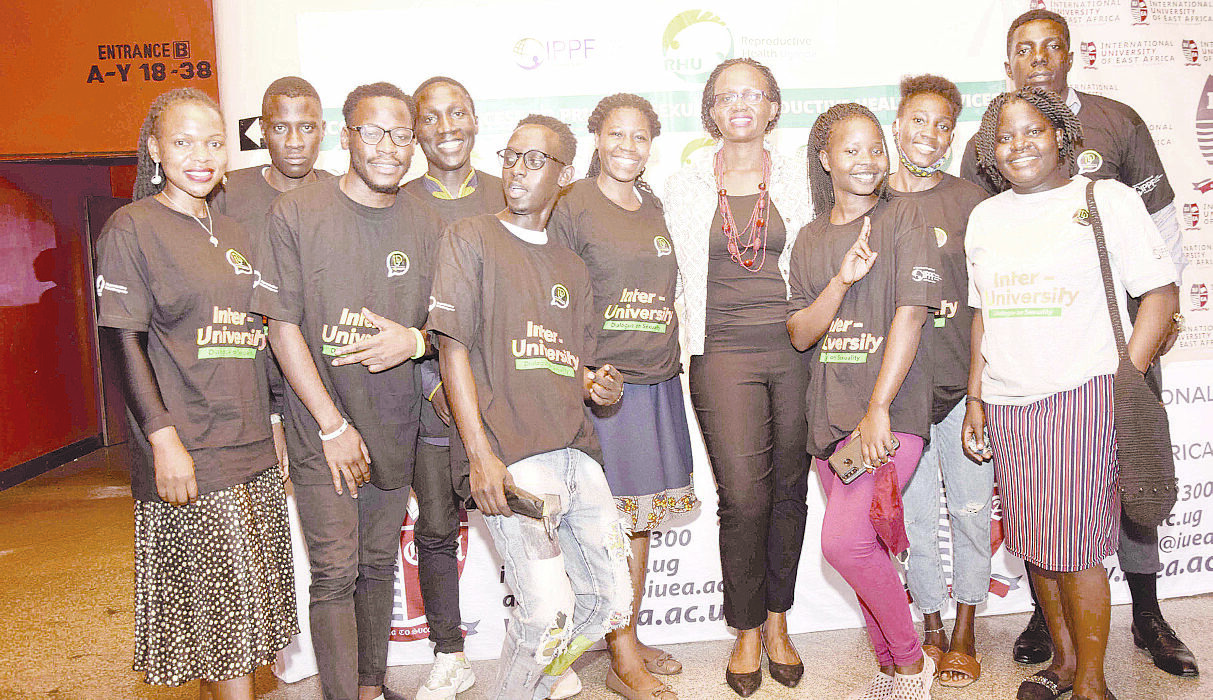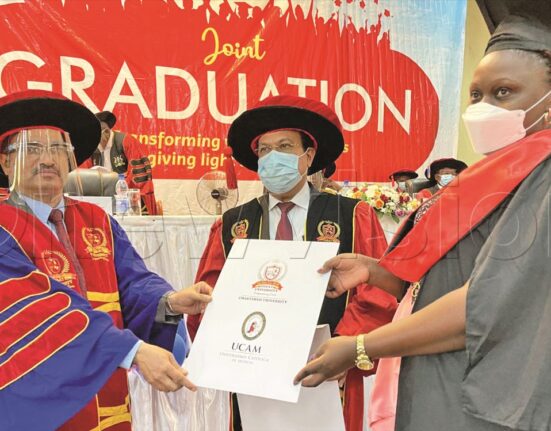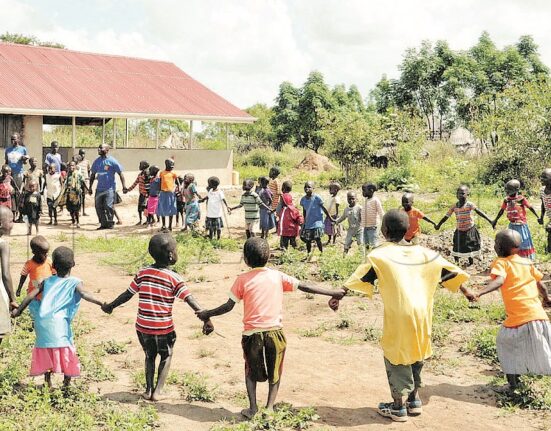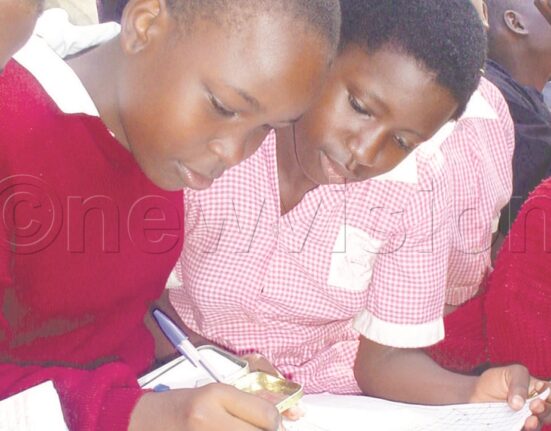(Published Wednesday, December 8, 2021)
By Nelson Kiva
Ahead of the schools reopening in January, parents and authorities have been reminded about the need to aid adolescent mothers to complete school.
The appeal was made by development partners over the weekend. This followed a revelation by the gender ministry that teenage pregnancies in some communities were at a disturbingly high rate of 40-50%.
Mondo Kyateka, the commissioner children affairs at the gender ministry, who represented the gender minister, Betty Amongi, during an inter-university dialogue on sexuality, hosted at the International University of East Africa (IUEA) auditorium in Kampala on Saturday, admitted that the latest trends of teenage pregnancies and deliveries emanating from the COVID-19 lockdown were worrying.
“Teenage pregnancies stand at over 25%, while in some areas it goes up to 40-50%,” he said.
More worrying, Kyateka revealed, is that about half of all pregnancies among women aged 15-19 years were unintended. He added that about 214,000 teenage pregnancies each year are unintended.

The dialogue, organised by Reproductive Health Uganda and IUEA, under the theme: Trying to create meaningful spaces for young people amidst the COVID-19 pandemic, attracted students and administrators from IUEA, Makerere, Makerere University Business School, Islamic University of Uganda, Uganda Christian University and Gulu University, among other institutions.
Representatives of civil society, as well as education and health ministries and the National Population Council, also attended the dialogue. According to the gender ministry’s latest data, an estimated 648,000 women aged 15-19 in Uganda are sexually active, but do not want a child in the next two years, while unmet family planning needs stood at over 33%.
“As government, we shall continue to put in place policies and we pledge to have the school health policy in place by next year.
To enhance the synergy between education and good health, the draft policy recommends measures, such as health education, physical education, sanitation and safe water and good nutrition, among others.
The measures will be implemented through a multisectoral approach with the leading sectors being education and health.
Recently, the Prime Minister, Robinah Nabbanja, revealed that the draft National School Health Policy will soon be tabled before Cabinet for approval, after which it will be tabled in Parliament
Sexual Education
Kyateka added: “The sexuality education framework, launched in 2018, will also help in addressing sexual abuse faced by girls. “It is being implemented, though with difficulty and some resistance from circles, but we are having dialogue with these circles in order to build consensus,” he said.
This policy provides an overview of the impact of good quality sexuality education on the health and well-being of children and young people.
“We have embarked on ormulating the family policy to guide us on how to secure the basic unit in the entire governance system and if we make the family secure, that will be a very big step in securing the country,” Kyateka added.
The goals of the guidelines, according to Kyateka, aim at empowering parents, the family and community structures to effectively nurture children so that they can realise their full potential.
Supporting Teenage Mothers
Dr Sylvia Atoko, the dean of the faculty of business and management at IUEA, who represented the vice-chancellor, Prof. Emeka Akeazuwa, said adolescent mothers should be given another opportunity to pursue their dreams through education.
“The government should make arrangements to accommodate all the adolescent mothers because they are not yet late for a better tomorrow,” she said.
Lillian Ssengooba, the deputy national director at SOS village Uganda, said one needs a supportive environment and this starts with parents. If parents believe their children are not yet mothers, they should support them to go back to school.”
Ssengooba added that authorities in different communities should look for all girls who got pregnant and delivered during the lockdown to ensure that they get back to school.
“We have worked with Gulu district leaders and they took it as a great issue, they looked for all the adolescent mothers and made sure that they all sat their Primary Leaving Examinations (PLE),” she said.
“At the same time, we should have early childhood development centres that cater for the babies as the mothers attend class,” Ssengooba added.
The United Nations Children Emergency Fund (UNICEF) has since called for the reopening of schools and giving a chance to adolescent mothers to continue with school. The situation and impact of COVID-19 on school-going girls and young women in Uganda, according to UNICEF, were dire.
It states that between March 2020 and June 2021, there was a 22.5% increase in pregnancy among girls aged 10-24 seeking first antenatal care from 80,653 to 98,810.
The UNICEF-supported child toll-free line, Sauti 116, reported over 600 cases in the month of June 2020 alone.
UNICEF country representative, Dr. Mohamed El Munir A. Safi eldin, said together with other partners, they were ready to support schools reopening and urged the Government to ensure that the teenage mothers are granted a chance to complete school.

Impact Of COVID-19
Dr Peter Ibembe, the director of programmes at Reproductive Health Uganda, indicated that COVID-19 has been devastating to the young people, especially girls.
Ibembe added that it is worrying to learn that some of the young girls were defiled by their parents, relatives and guardians.
The Rev. Moses Ssemugooma, the health coordinator for Mityana Diocese, said it is high time the Church became the voice for the voiceless. We have seen increased cases of teenage pregnancies in our communities, churches and homes and this cannot be underlooked.
“It is our role to mobilise fellow Ugandans to speak against teenage pregnancy and get solutions for those already affected,” he said.
Henry Semakula from the department of counselling and guidance at the education ministry said arrangements are being made to prepare learners, parents and teachers before schools reopen.
This, according to Ssemakula, is going on through talkshows on radios and television and training sessions at different levels in the structure of governance.









Leave feedback about this